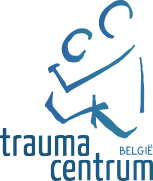Trauma?
What is trauma ...
The word trauma (from Greek) literally means wound, injury, damage from external violence.
Today, the word trauma is used to:
- To indicate the shocking incident, the traumatic event itself, which leaves deep marks in the person.
- To the injuries a person carries around after experiencing a shocking, overwhelming event or being subjected to violence for an extended period of time.
The person experienced this situation as a real threat to his personal integrity or to his life and felt completely powerless and helpless in the face of this threat.
Trauma is rather the experience and not the exposure!
Trauma is that which causes dissociation (Howell,2020)

Types of traumatic stressors
Natural disasters, accidents...
Criminal violence, rape, sexual harassment, armed struggle and terrorism.
Abuse (physical, sexual, antipathy, psychological abuse, humiliation...)
Neglect (physical, psychological, social, medical...)
"Invisible attachment trauma" (The quality of the relationship between parent and child is insufficient to establish a secure attachment)
Trauma symptoms
- There may be a distortion in thoughts about oneself, the perpetrator, other people and the world in general.
- An explanation of why such a thing happened is often sought, partly with the intention of gaining some control over life and making it predictable.
- Sometimes people start blaming themselves and thinking they are bad.
- Certain thoughts can contribute to losing faith and trust in God, justice or a good future.
- Ideas about oneself (Internal work models) emerge in four areas namely: self-worth/safety/responsibility/competence.
trauma symptoms
- Due to trauma, the body is perceived as unsafe:
- The body carries the trauma
- The body is in pain
- The body carries the fear
- Because of attachment trauma, there is an unsafe attachment to the body.
- Because of trauma, there is a splintered body.
- Through trauma, the body is separated from the self.
- Symptoms: Stomach ulcers, high blood pressure, back and headaches, rheumatic disorders, muscle pains, excessive sweating, hyperventilation, abdominal cramps and cardiac arrhythmias.
- Many psychosomatic complaints can be understood as anxiety equivalents.
trauma symptoms
- Traumatic events have the potential to trigger a change in brain functioning.
- The amygdala, considered the vigilance center of the brain, is under constant stress.
- A stress response ensues with physiological consequences such as increased heart rate, accelerated breathing, increased blood pressure, increased alertness...a state of hyperarousal
- Or a reduced state of arousal (hypoarousal) occurs due to the increased stress and manifests as fatigue, passivity, stiffening of the body, disconnected from reality....
trauma symptoms
- When there is attachment trauma, certain unsafe attachment styles are adopted:
- Insecure avoidant attachment style (in adult: reserved style),
- Insecure ambivalent attachment style (in adult: preoccupied attachment style)
- Disorganized style (in adult: disoriented attachment style)
- Thanatos attachment style
- Relationally, one may be caught up in a traumatic bond with one's partner
- The relationship can get stuck in the trauma triangle (perpetrator/ victim/ missing other)
- No continuity in the experience of the self
- The self is not developed
- The self is hidden
- The self is fragmented
trauma symptoms
- Loss of values and dignity
- Loss of hope/ faith
- Loss of future perspective and goal setting
- Hatred and retaliation
Making an appointment
Contact us without obligation for an introductory meeting
